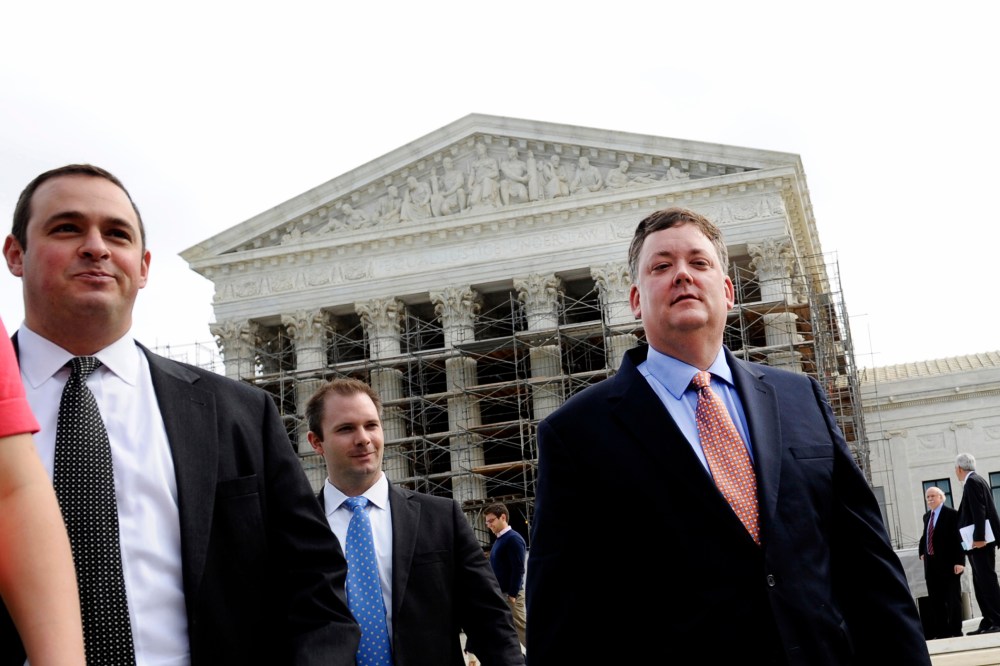The Supreme Court has struck down a key remaining pillar of campaign finance law, handing a big victory to the Republican Party. And now there’s concern the court could soon go even further.
By a 5-4 ruling, the court decided that aggregate limits on campaign contributions—that is, how much an individual can give in total contributions per cycle—are an unconstitutional violation of the First Amendment’s guarantee of free speech.
The Justices did not touch the more prominent limits on how much an individual can give to any single camapign or committee. But many campaign finance experts say the ruling suggests that those limits could be the next to fall.

Justice Clarence Thomas wrote his own opinion in which he argued for scrapping those limits. None of the other Justices joined him. But the court did say that campaign finance laws can only aim to stop quid pro quo corruption, not less direct forms of corruption. In doing so, the court may have laid the foundation for a fresh challenge to the individual limits, based on the argument that they define corruption too broadly and aren’t narrowly tailored to stop quid pro quo corruption.
Senate Minority Leader Mitch McConnell argued in an amicus brief that the individual limits should be struck down. And David Donnelly of Public Campaign Action Fund said McConnell may get another chance to make his case.
“That is the last remaining piece of our election law,” Donnelly said,. “Clearly that’s going to be the next effort.”
Wednesday’s ruling is plenty far-reaching on its own. The court found that the only kind of corruption the government can legitimately use campaign finance laws to address is quid pro quo corruption, and that the aggregate limits do not further that goal. Instead, wrote Chief Justice John Roberts for the majority, they “intrude without justification on a citizen’s ability to exercise ‘the most fundamental First Amendment activities.’”
The court’s five conservative justices struck down the limits, while the four liberal justices dissented.
“With its Citizens United and McCutcheon decisions, the Supreme Court has turned our representative system of government into a sandbox for America’s billionaires and millionaires to play in,” said Fred Wertheimer, a veteran Washington campaign finance advocate.

Federal law had barred individuals from contributing, in aggregate, over $46,200 to candidates, and over $70,800 to groups. Shaun McCutcheon, an Alabama businessman, brought the case with heavy backing from the GOP. McCutcheon had already contributed to 16 Republican candidates, but wanted to give to 12 more, and to give separate $25,000 contributions to three Republican committees. Doing so would have put him over the aggregate limits.











